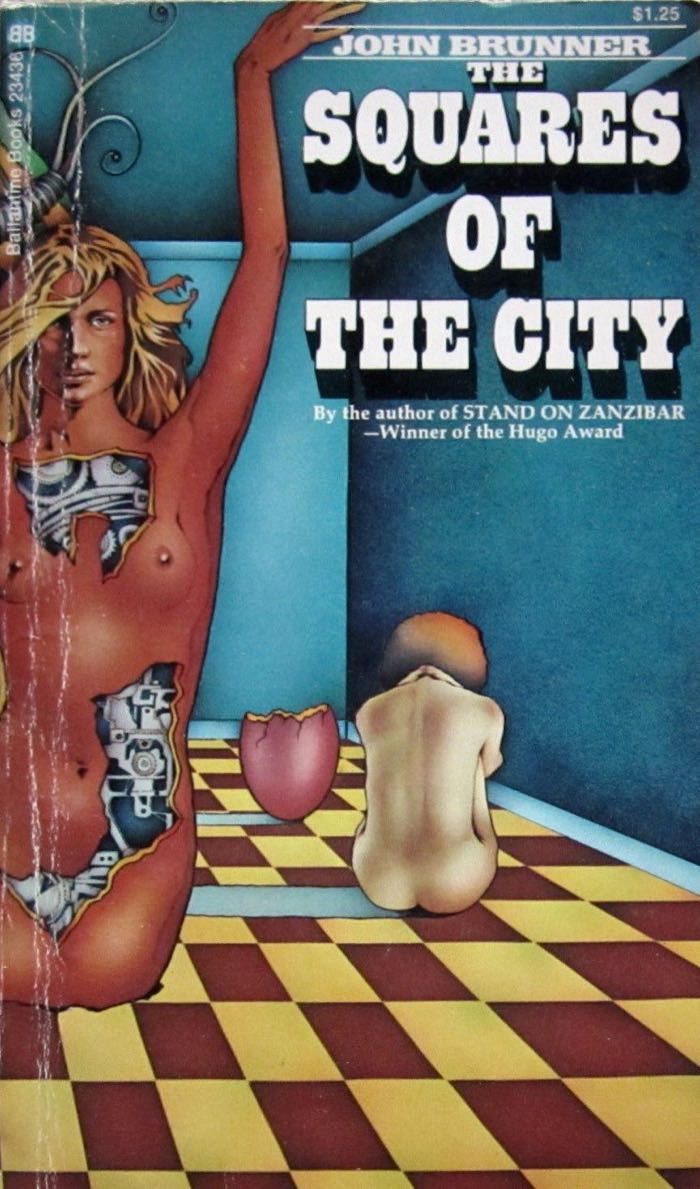The Squares of the City
Reviewed date: 2004 Dec 28
Rating: 2
315 pages
Plot Synopsis: Boyd Hakluyt, the world's best traffic flow analyst, accepts a job to fix the traffic problems in the Latin American city of Vados. When he arrives he discovers that there is no significant traffic problem. He has been hired to give the city's ruling political party an excuse to demolish a peasant shanty-town that mars the otherwise pristine city. Hakluyt quickly finds himself squeezed by the demands of his employers, by the threats of the opposition party, and by his professional reluctance to deliver a traffic plan designed to solve a social--not a traffic--problem.
The Squares of the City was nominated for the Hugo, but it suffers from a number of problems.
- It is a gimmick. The Squares of the City is written as a chess game. The action follows the results of an 1892 chess match between Steinitz and Tchigorin. Each character in the book represents a chessman from the real game, as the afterward notes. But surprisingly, the moves of the chess game are not included. I guess John Brunner expects the reader to have a chess history book in which to look up the game. After all, doesn't everyone have an encyclopedia of moderately famous chess games?
- There are too many characters. Most of them are incidental and distract from the plot, but Brunner was forced to include them because the chess game demanded it. The glut of characters is confusing and distracts from the story.
- Hakluyt's motivations are unclear. Why should an Australian traffic analyst get involved in local politics? Even when Hakluyt's life is threatened, he still remains in Vados, meddling in politics and generally being a nuisance. But it makes no sense! No sane person would risk his life in a foreign city doing a job he knew was merely to provide an excuse for the mayor to demolish a shanty-town. Hakluyt makes some noises about staying in Vados to finish the job in order to protect his reputation as a traffic analyst, but this explanation fails under inspection. By his own admission, Hakluyt is one of the world's best traffic analyst. Further, traffic analysts are few and in high demand--that was why Hakluyt chose his profession. If he quit on the Vados job, Hakluyt's professional reputation would be damaged slightly, but not enough to affect his work. So when his life is threatened, Hakluyt's decision to stay on and finish the job is unconvincing. Yes, it had to happen that way because of the chess game, but that does not make it a good story.
- The story assumes that people are predictable. Older science fiction stories often make this mistake. People cannot be controlled via subliminal messages on television, nor can a person's reactions be predicted with enough precision to let a deranged dictator pull strings like he was directing a puppet show. People are complex and irrational, not simple and controllable.
I cannot think of a good reason to read The Squares of the City. There was nothing objectionable in it, so I'll give it a score of two instead of a one.
